2014 Partnership & Foundation Highlights
We are proud to deliver lasting change to the world’s poorest communities. We also are grateful for the trust and generous contributions so many donors and partners invest in our work around the world. Their support moves our mission forward. Thank You.
Featured Partnerships
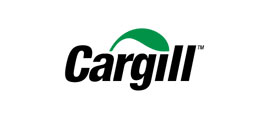 Cargill's partnership with CARE dates to 1958, when then-company-president Cargill MacMillan
announced a corporate contribution to CARE’s Food Crusade in lieu of customary holiday cards.
In the decades since, the partnership has grown to a global effort. In September 2013, CARE and
Cargill launched the latest phase of our strategic partnership, a three-year, $7.5 million effort
to help more than 100,000 people achieve food and nutrition security in seven countries. The
partnership is marked by significant involvement among Cargill employees, business units and
vendors, who add significant value and new opportunities for the communities CARE serves.
Cargill's partnership with CARE dates to 1958, when then-company-president Cargill MacMillan
announced a corporate contribution to CARE’s Food Crusade in lieu of customary holiday cards.
In the decades since, the partnership has grown to a global effort. In September 2013, CARE and
Cargill launched the latest phase of our strategic partnership, a three-year, $7.5 million effort
to help more than 100,000 people achieve food and nutrition security in seven countries. The
partnership is marked by significant involvement among Cargill employees, business units and
vendors, who add significant value and new opportunities for the communities CARE serves.
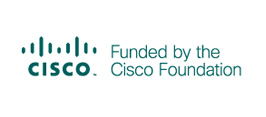 CARE and Cisco Foundation are developing, testing and scaling a new electronic management
information system (eMIS) for agriculture and food security programming. In India and
Tanzania, CARE uses Android mobile phones or tablets and an open-sourced software platform
to improve performance tracking of farmers. For data analysis, the team is building a webbased
dashboard and reporting interface that allows us to export the collected data in a
simple Excel format. This allows CARE to analyze aggregate group performance at multiple
levels (district, regional, national and global), identify challenge areas, and understand
characteristics of highest- and lowest-performing groups. Currently used in CARE’s Pathways
agricultural program, the system provides real-time data and quicker feedback loops that
improve project performance and increase transparency and accountability.
CARE and Cisco Foundation are developing, testing and scaling a new electronic management
information system (eMIS) for agriculture and food security programming. In India and
Tanzania, CARE uses Android mobile phones or tablets and an open-sourced software platform
to improve performance tracking of farmers. For data analysis, the team is building a webbased
dashboard and reporting interface that allows us to export the collected data in a
simple Excel format. This allows CARE to analyze aggregate group performance at multiple
levels (district, regional, national and global), identify challenge areas, and understand
characteristics of highest- and lowest-performing groups. Currently used in CARE’s Pathways
agricultural program, the system provides real-time data and quicker feedback loops that
improve project performance and increase transparency and accountability.
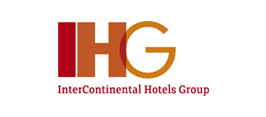 As the global partner for InterContinental Hotel Group’s Shelter in a Storm program, CARE
has received generous funding in support of its disaster relief programs. This was certainly
true following Typhoon Haiyan in the Philippines, when IHG and its thousands of employees
raised funds to support CARE’s efforts. In addition to that support, IHG and its hotels in
Manila provided significant discounts to CARE staff who were on a short respite from the areas
hardest hit by the typhoon. This in-kind gift was of tremendous value to our staff who had
been working in difficult conditions to provide relief to thousands of Haiyan-affected people.
As the global partner for InterContinental Hotel Group’s Shelter in a Storm program, CARE
has received generous funding in support of its disaster relief programs. This was certainly
true following Typhoon Haiyan in the Philippines, when IHG and its thousands of employees
raised funds to support CARE’s efforts. In addition to that support, IHG and its hotels in
Manila provided significant discounts to CARE staff who were on a short respite from the areas
hardest hit by the typhoon. This in-kind gift was of tremendous value to our staff who had
been working in difficult conditions to provide relief to thousands of Haiyan-affected people.
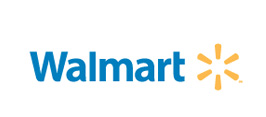 CARE and the Walmart Foundation are on track to reach 50,000 garment workers in Bangladesh
as part of a five-year initiative called Women in Factories. In addition to providing critical life
skills training for a predominantly female-centered workforce, CARE also has created the global
curriculum being used by other NGOs implementing the Women in Factories program around
the world. Topics include literacy, numeracy, financial literacy, gender, health, nutrition,
communication and leadership skills. CARE also trains factory managers and floor supervisors
on these skills, in order to establish an environment where female garment workers feel
that their voices are important and heard, and where they see a ladder toward greater
economic empowerment.
CARE and the Walmart Foundation are on track to reach 50,000 garment workers in Bangladesh
as part of a five-year initiative called Women in Factories. In addition to providing critical life
skills training for a predominantly female-centered workforce, CARE also has created the global
curriculum being used by other NGOs implementing the Women in Factories program around
the world. Topics include literacy, numeracy, financial literacy, gender, health, nutrition,
communication and leadership skills. CARE also trains factory managers and floor supervisors
on these skills, in order to establish an environment where female garment workers feel
that their voices are important and heard, and where they see a ladder toward greater
economic empowerment.
Featured Foundations
The Bill & Melinda Gates Foundation has been a vital CARE partner since 2001, supporting programs in food security, health, water and sanitation, emergency response, women’s empowerment, advocacy, and livelihood development. The Gates Foundation supports Pathways, CARE’s initiative to help women smallholder farmers in Bangladesh, Ghana, India, Malawi, Mali and Tanzania improve livelihoods and food security for themselves and their families. CARE is the lead partner in efforts to strengthen the health system across the Indian state of Bihar, aiming to transform public health and nutrition services, increase child survival, improve maternal health and eliminate an infectious disease. The foundation has supported CARE’s emergency response efforts in Bangladesh, Bolivia, the Horn of Africa and Indonesia, as well as CARE’s Learning Tours program, through which CARE raises awareness about the positive reach and scope of U.S. development assistance.
The Sall Family Foundation supports groundbreaking programs focused on conservation agriculture in Mozambique and Nepal, maternal health in Malawi and nutrition in Bangladesh, Indonesia, Nicaragua, Peru and Sierra Leone. These programs, which include support for the CARE-World Wildlife Fund Alliance, recognize the connections between development and conservation and are helping set the stage for future international development work.
The Howard G. Buffett Foundation supports CARE’s partnership in the Global Water Initiative. The Foundation’s commitment to innovation allows CARE to maximize its effectiveness and deliver lasting change in the area of water and agriculture.
The Ford Foundation supports CARE’s leadership within Girls Not Brides USA, a program that assists women and adolescents by supporting research to address gender issues and combat the practice of child marriage. In addition, foundation’s support drives a dynamic partnership with CARE Egypt for governance and community development work for citizen rights.
Conrad N. Hilton Foundation is a strong supporter of CARE’s early childhood development programs in Mozambique, with a focus on helping young children living in communities affected by HIV/AIDS. The Hilton Foundation has been instrumental in CARE’s work at the country level to promote early childhood development and to assist people affected by the global HIV/AIDS epidemic.
Educate a Child (EAC), a program of Education Above All, is a global initiative launched by Her Highness Sheikha Moza bint Nasser of Qatar, which aims to significantly reduce the numbers of children worldwide who are out of school. EAC supports CARE’s education projects in Haiti and Somalia..
Reach Out to Asia (ROTA), based in Qatar, supports CARE’s education projects in Pakistan, Yemen and Afghanistan. ROTA’s close collaboration with local partners and communities ensures that children have sustainable access to high-quality primary and secondary education.
Government Partner: USAID
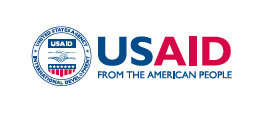 Marie-Melia Joseph couldn’t recall the last decent meal her family ate, as she spoke with a
CARE staff member on the streets of the Boucan Carré community in Haiti. “We eat what we
can harvest from our small family plot and buy what we can with whatever money we make
from selling fruits we gather on the road,” she said. “Some days are better than others.”
Marie-Melia Joseph couldn’t recall the last decent meal her family ate, as she spoke with a
CARE staff member on the streets of the Boucan Carré community in Haiti. “We eat what we
can harvest from our small family plot and buy what we can with whatever money we make
from selling fruits we gather on the road,” she said. “Some days are better than others.”
Having walked more than an hour to the market, this day would be different for Marie-Melia and her family. The mother of eight is a participant in the Kore Lavi program — funded by the U.S. Agency for International Development (USAID) — which aims to prevent malnutrition and get food to the tables of Haiti’s most vulnerable families.
Launched in October 2013 and implemented by a CARE -led consortium, the fouryear, $80 million Kore Lavi will reach more than 300,000 households through greater awareness of proper nutrition — particularly for pregnant and lactating women and young children — and with $25 in monthly food assistance in the form vouchers. It also links many of those families with local savings groups so they can access necessary resources to enhance their lives, health and nutrition.
Participants use a paper voucher to buy fresh fruit, vegetables, meat and fish, and an electronic one to purchase staples such as maize, beans, rice and flour. Both must be applied toward locally grown food, so not only do they help the families who use them, but they promote local agriculture and reward the food vendors who accept them, as well.
“When the Kore Lavi agent came by our house to announce that we were now part of the program, I didn’t know what to think,” said Marie-Melia. “I could not believe this was really happening. If what they were saying was true, it meant that I could finally rest a little easier and not worry so much about where the next meal would come from.”
In its first year, Kore Lavi reached nearly 110,000 people like Marie-Melia through vouchers or assistance with nutrition. It helped another 40,000 people save money — which they invest in their families — by connecting them with 342 community savings groups. And 182 local vendors, most of them women, participated in the program by selling their locally produced food.